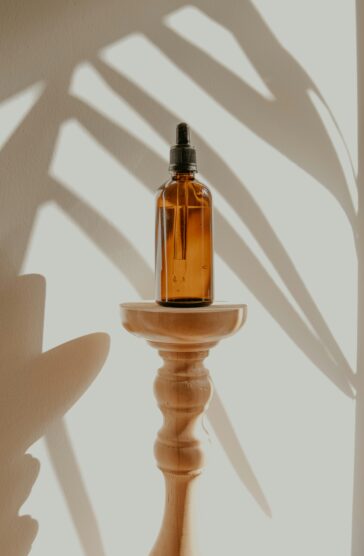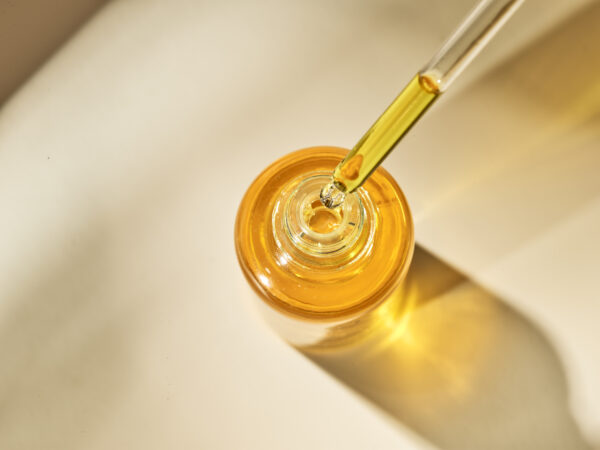What Is the Purpose of Beauty Oils?
There’s a long tradition of using oils for beauty purposes—they’ve been used for millennia in the Middle East, Africa, and Asia—but it’s only in the last decade or so that we in the West have adopted them. And oh boy, have we. Market research firm GMI says cosmetic oil sales exceeded $4.8 billion (U.S.) in 2020 and estimates that by 2027, this will grow to $7 billion.
We’re buying them for just about everything: removing makeup, keeping our complexions smooth and moisturized, minimizing the appearance of scars, plumping lips, helping carry ingredients like retinol deeper into skin, and making hair shiny and curls bouncy.
Cosmetic chemist and formulator Ramya Viswanathan says you need to use the right oil for the right purpose, and for your skin or hair type. “Castor or olive oils are denser, and they’re going to feel heavier versus something like a squalane or jojoba, which is lightweight and can go into skin more easily,” she explains. “There’s also the element of the refractive index—how much light passes through a substance, which is the way the shine factor is measured. Oils that create more shine might be used for hair but not for skin.”

“An oil has quite a specific chemistry and scientific definition,” says dermatologist Dr. Shannon Humphrey. “It’s primarily made of fat and is typically a liquid at room temperature.” (Coconut, palm, and palm kernel oils are exceptions.) Oils are lipophilic (they love fats) and hydrophobic (they hate water). They’re often derived from plants but can also come from petroleum (mineral oil). Most essentials oils aren’t really oils by the chemical definition, and many dermatologists, including Dr. Humphrey, aren’t fans of applying them to skin because they can cause irritation.
Oil can do things that other products, such as a water-based serum, can’t. Retinol, one of the most researched and effective ingredients for exfoliating and addressing issues like fine lines and dark spots, is oil soluble. “If it’s in a water-based formulation, that can impact its effectiveness because it starts to degrade,” Viswanathan explains. “An oil formulation can stabilize it and may also help minimize possible irritation.”
Dr. Humphrey says that an oil-based formula will also enhance the penetration of the retinol into skin—though it may be no better than a cream or lotion, both of which have oils in them. The Ordinary offers a number of different retinols mixed with squalene, an oil derived from sugar cane.
Apart from carrying other ingredients, oils are helpful as occlusives and emollients. “Occlusive ingredients essentially lock moisture in and reduce transepidermal water loss [evaporation of water from skin],” Dr. Humphrey says. “Emollients are ingredients we put on the skin that serve to smooth the dead skin layer and helps to restore the barrier function.”
But an oil isn’t necessarily better than a cream or lotion for that. “People that exclusively use oils as moisturizer can find that their skin does become drier quicker because they’re not able to retain water as much, and the oil doesn’t add additional water to their skin,” Dr. Aegean Chan explains. A better option is probably to apply a moisturizer first, followed by an oil to lock its ingredients in. REN’s Evercalm Barrier Support Face Oil has a combination of meadowfoam seed, camellia japonica seed, and inca inchi oil, and it is fairly light so can be used in the morning (before sunscreen) without looking greasy, provided it’s applied in moderation. Dr. Chan also suggests squalane oil for barrier repair since the skin naturally has squalane in it. Biossance has a 100 per cent pure version.

Courtesy of JVN
When it comes to hair, oils have a various uses, but they might not be for everyone. Oribe brand ambassador and hairstylist Andrew Ly suggests applying something like Gold Lust Nourishing Hair Oil to towel-dried locks because the dampness will help the be absorbed rather than sitting on the surface and making it look greasy. “The brush that you use is also key as a quality bristle brush will help the oil penetrate into cuticles,” he says, suggesting the Beechwood Large Round Brush, which has boar bristles that smooth the cuticle.
Viswanathan says oils can also help with hair elasticity, which has led to the trend for hair slugging: coating dry hair in oil, wrapping it in a sock, and washing it out after 15 minutes or so. You can use JVN’s Complete Pre-Wash Scalp Oil for that, though go easy if you have light-coloured hair as the natural turmeric in it could stain. The product also works as a preshampoo to help nourish the scalp and prevent shampoo from stripping its moisture.
As for who should maybe skip oils, ingredients like coconut and avocado oil might not be great moisturizers for acne-prone skin since they can clog pores. And oils in general aren’t a panacea. “There’s a lot of hype right now,” Dr. Humphrey says. “The marketing demand is very, very robust, likely outweighing the science a little bit.” But that’s no reason to rule them out completely. “If patients like the way an oil feels on their skin, if that texture is kind of appealing and contributes to self-care and beautiful looking skin, then spending the time to find the oil or oil blend that’s right for them makes sense.”




